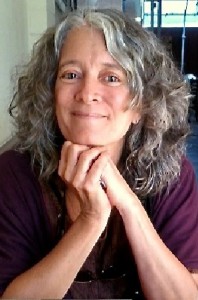Dr. Marcel and I love to travel. Absorbing fresh sights in foreign lands stimulates our imagination and expands our hearts.
Wherever our travels take us these days, we find people expressing deeply unsettled feelings about the prospects for a peaceful world.

With the immediacy and pervasiveness of electronic communication, we’ve all become thoroughly familiar with the jarring income disparities, heartrending stories of good people who’ve suddenly become refugees, not to mention the usual woes that the world always seems to be heir to: poverty, starvation, disease, pollution, and on and on.
The recent national election here in the U.S. seems to have been a tipping point that has fomented an unprecedented sense of division.
Many people, confronted with today’s world, feel powerfully compelled to stick their heads in the sand and pretend it isn’t happening, or that it’s happening elsewhere and it isn’t their problem.
Unfortunately, the trouble with denial, apathy, and inaction is that they simply don’t work: they don’t heal our own sense of stress as individuals, nor are they consistent with personal physical and mental wellness. And of course they don’t begin to solve the world’s problems even at a local, manageable level.
Thoughtful people can look within and decide if they’ve fallen into a habit of harboring emotions and opinions that, at some level, aren’t contributing to heal the sense of global crisis.
Words do matter. Thoughts matter. We live in a world that, for all its ills, is composed of energy. And that means that our own positive or negative energy counts – a lot!
What we say and do will inevitably impact every one of the beings on this planet to a degree, although we may be unaware of it.
We may not be able to change the world by our individual efforts in a massive, global way. But all change begins with the individual. And we can start to create a pulsing, dynamic movement of peace and good will by tending the garden of our own positive thoughts, feelings, and actions.
Think of the whole foods movement that started in the early 1970s. Back then, we were dismissed as kooks and laughed at as part of the weirdo fringe. Now, virtually everyone understands the value of a healthy diet. And it all happened “one granola bar at a time” – by individuals who changed themselves first and inspired a few others by their radiant example.
It’s not good enough to lightly dismiss the angry or judgmental thoughts that naturally arise in response to the actions of others. Because it’s the cumulative effect of all the little “I don’t likes,” and “He/she ought to be better than they are’s” that matters – because they fuel the pollution of our own and the world’s energy. Those negative thoughts generate furrows of division in the fabric of our spiritual connectedness.
The good news is that if can transform our thoughts and words and emotions, we will be making a very real, priceless contribution to the transformation of the world.
The chaos and divisiveness that we see everywhere today reflects the fear and negativity of many individual hearts and minds.
To repeat: change always starts with the individual.
Change is a matter of heart and mind. To heal our increasingly troubled world, each of us must engage in the mental, emotional and spiritual work that may be required to heal our own inner world.
I’m fortunate to live in the supportive environment of a spiritual community. I find that meditation is my first and foremost weapon for generating an aura of peace, harmony, and compassion in my life.
The spiritual path that I personally follow can be quite a stretch for many of my patients. I therefore find myself seeking doorways through which others can access simple, practical approaches to personal transformation.
After some thought, I signed up for a series of weekly presentations that blend science, spirituality, and activism.
Several of the Peace Ambassador Training presentations particularly struck me, because the tools they offered are so immediately accessible and powerful.
Dr. Richard Miller shared mindfulness practices that many people have used with great success to treat anxiety, post-traumatic stress, and similar ailments. See www.iRest.US for more information. Mindfulness meditation is now offered through many major medical centers.
Another series of tools were introduced by the CEO of Heartmath, a group of scientists who are researching the powerful effects of the feelings of the heart on our bodies, brains, and social interactions. Heartmath offers tools for harmonizing the heart’s feelings as a portal to personal joy, social and global coherence, and less stressful living. See www.heartmath.com.
In a third and very powerful presentation, Colin Tipping focused on the process of “radical forgiveness.” At www.radicalforgiveness.com you can find free worksheets that will guide you through a process for releasing disturbing emotions of anger, resentment, and the like.
Presentations to come will focus on outer work such as nonviolent communication and community involvement. Stay tuned.
* * *
Read more about the medical services Dr. Connie offers here: http://www.naturopathichealthconsultations.com
